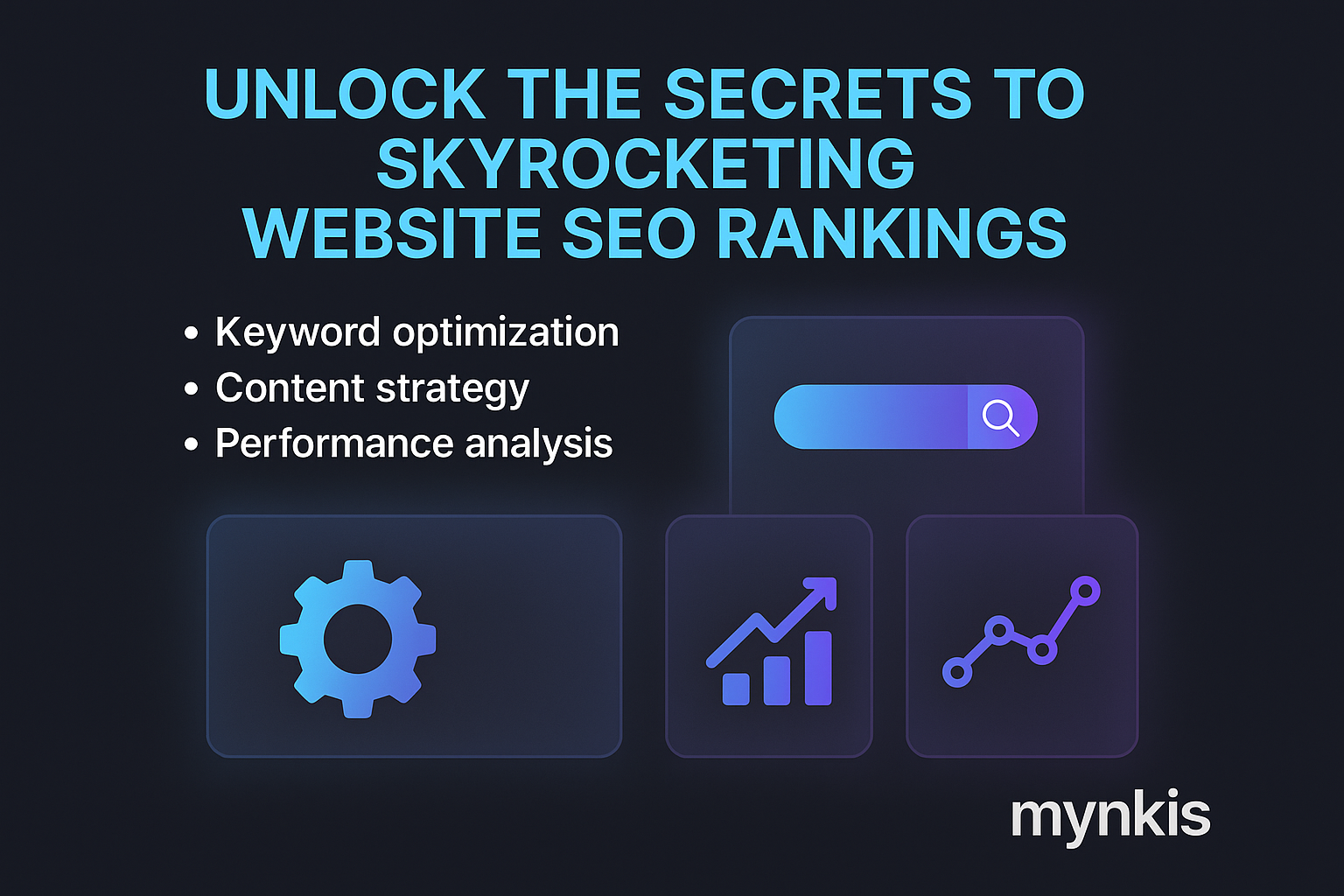Schedule a Demo
SEO, or Search Engine Optimization, isn't just about sprinkling keywords throughout your site. It's about creating a comprehensive strategy that enhances your site's visibility and appeal to both search engines and users. In my experience working with business owners eager to harness the power of their online presence, I've seen how a strong foundation in SEO can truly transform a website's performance.
Keyword research is the bedrock of any SEO strategy. It involves identifying the terms and phrases your target audience uses when searching for products or services like yours. Tools like Google's Keyword Planner can provide insights into search volume and competition. I've often found that businesses focusing on long-tail keywords tend to see faster results because these terms are more specific and less competitive. They can attract highly targeted traffic to your site.
On-page SEO involves optimizing individual pages of your site for search engines. This includes elements like title tags, meta descriptions, and header tags. For example, ensure your title tags are concise yet descriptive, incorporating primary keywords naturally. In my work, I've witnessed how a well-optimized title can boost click-through rates significantly. Additionally, using header tags (
Content truly is king in the world of SEO. Search engines favor websites that provide valuable, high-quality content to their users. Aim to create content that is not only keyword-rich but also informative and engaging. A study by the Content Marketing Institute found that businesses publishing 16 or more blog posts per month see nearly 3.5 times more traffic than those publishing 0-4 monthly posts. Moreover, integrating multimedia elements such as videos, infographics, and images can enhance user engagement and increase dwell time on your site.
Link building is another crucial aspect of SEO. It involves acquiring hyperlinks from other websites to your own. These links signal to search engines that your site is a credible source of information. In my consultancy, I've advised clients to focus on earning backlinks from reputable sources in their industry. Guest blogging and partnering with influencers are effective strategies to build quality backlinks. However, always ensure that these links are earned naturally, as search engines penalize manipulative practices.
Technical SEO focuses on improving the technical aspects of your website to enhance its search engine rankings. This includes improving site speed, ensuring mobile responsiveness, and fixing broken links. According to research by Google, site speed impacts user behavior and can significantly affect your SEO. Personally, I've helped businesses improve their mobile responsiveness, leading to better mobile user experiences and higher search rankings. Regular audits using tools like Google's PageSpeed Insights can help you identify areas for improvement.
User experience (UX) plays a significant role in SEO. Search engines like Google prioritize websites that offer a seamless user experience. This includes intuitive navigation, fast load times, and content that is easily digestible. Based on my work with clients, I've observed that sites with a clear, user-friendly interface tend to have lower bounce rates and higher engagement. Enhancing your site's UX not only improves your SEO but also encourages visitors to return, fostering long-term growth.
If your business targets a local audience, local SEO is essential. This involves optimizing your website for location-based searches. Tools like Google My Business can help you manage your online presence and attract local customers. In a recent project, we successfully increased a local business's visibility by optimizing their Google My Business profile and ensuring consistent NAP (Name, Address, Phone number) information across the web. Encourage satisfied customers to leave reviews, as these can boost your local search rankings.
Social media can play a supportive role in SEO. While social signals don't directly influence search engine rankings, a strong social media presence can drive traffic to your website and enhance your brand's visibility. Sharing your content on platforms like LinkedIn, X (Twitter), and Instagram can attract more visitors to your site. In one case study, a client saw a 20% increase in site traffic after implementing a strategic social media campaign alongside their SEO efforts. Remember, however, that the core focus should remain on improving your site's search engine performance.
Analytics is indispensable for refining your SEO strategy. Tools like Google Analytics and Search Console provide insights into your website's performance. They help you understand which pages are ranking well, where your traffic is coming from, and what keywords are driving visits. Through analytics, I've been able to identify underperforming pages for my clients and adjust their SEO tactics accordingly. Continuous monitoring and adjustments based on data are essential for long-term SEO success.
There are several common SEO mistakes that can hinder your site's performance. One major pitfall is over-optimization, stuffing your content with too many keywords, which can lead to penalties from search engines. Another mistake is neglecting mobile optimization, as a significant portion of web traffic now comes from mobile devices. From my experience, I often see businesses underestimate the importance of regular content updates, which can keep your site relevant and attract repeat visitors.
The field of SEO is continually evolving, with search engines regularly updating their algorithms. Staying informed about the latest trends is crucial. Recent developments like Google's E-A-T (Expertise, Authoritativeness, and Trustworthiness) principles have emphasized the need for high-quality, expert-driven content. I've found it helpful to follow industry blogs and attend webinars to stay abreast of new SEO developments. Adopting new strategies promptly can give you a competitive edge and keep your site ahead of the curve.
The future of SEO is increasingly tied to artificial intelligence (AI) and machine learning. These technologies enable search engines to better understand user intent and deliver more relevant results. For instance, Google's RankBrain uses machine learning to interpret search queries and improve search results. As an expert in this field, I believe businesses will need to optimize their sites not just for keywords but for the user's broader intent. Keeping an eye on these technologies and incorporating them into your SEO strategy will be key to staying ahead in the digital landscape.
